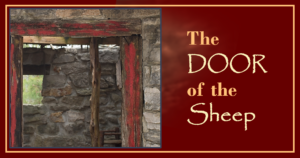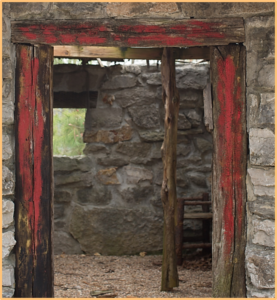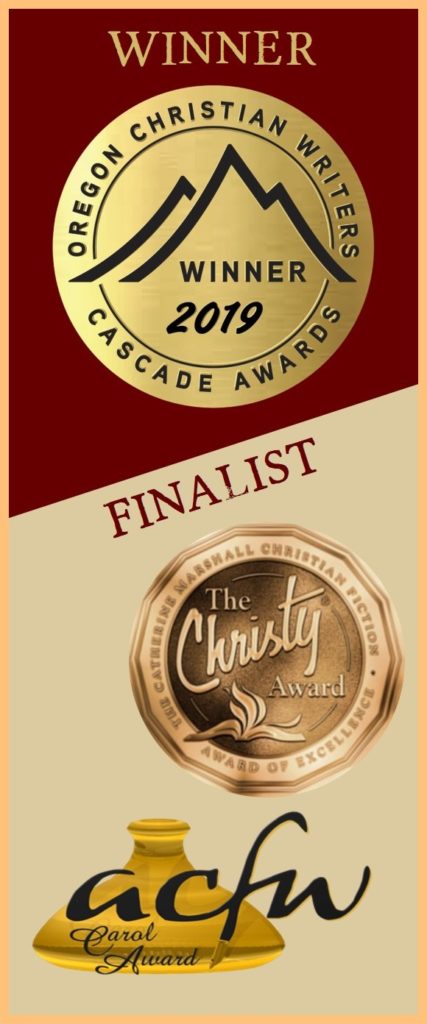The Life-Giving I AMs of Jesus: The Door
There’s more to Jesus’ statement than meets the eye.

Lauren Crews
For this post, I’m tag-teaming with teacher extraordinaire, author and speaker Lauren Crews, a regular guest here at Five Stones and a Sling. It was Lauren’s insights on Yeshua’s “door” statement that got me interested in studying how Yeshua’s I AM statements relate to the Feasts. I’m thrilled to include an extract from her original guest post, in addition to some of my own observations today. Thanks, Lauren!
“Most assuredly, I say to you, he who does not enter the sheepfold by the door, but climbs up some other way, the same is a thief and a robber…. I am the door. If anyone enters by Me, he will be saved, and will go in and out and find pasture.” (John 10:1,9)
This is the second post in a series on The I AMs of Jesus. You’ll find the first post here.
From Lauren:
In my home, we celebrate both Passover and Resurrection Day. I’m not Jewish, but Jesus was. As I’ve learned more about the life of Jesus I’ve come to embrace the Jewishness of His life. This includes not only the celebration of His culture, but also the way He would have studied and taught Torah. As a Christian, knowing some of these nuances has helped me better understand God’s word.
One aspect of God’s word I’ve enjoyed studying are the I AM statements of Jesus. Jesus made each announcement with the backdrop of a feast or timing important to the Jewish calendar.
But why would Jesus call himself a door in John 10:9? We are tempted to read through this passage of John with the quick understanding that this statement expounds His teaching on the Good Shepherd. We understand the passage to say He’s not only our shepherd, but He’s also the gate, or door, to the sheep pen as well. This line of thought gives us our first layer of understanding–a good lesson of comfort and protection. For the Jewish listener, this statement, as well as the words surrounding it, are packed with remarkable insight.
Jesus had just healed the man born blind man [NOTE: See Linda’s recent post for more on this dramatic healing, which took place against the backdrop of the Feast of Tabernacles]. The Pharisees questioned the man, and when he challenged them, their response was, “Well, you are His disciple, but we are disciples of Moses. We know that God has spoken to Moses; but as for this man, we do know where He is from.” (John 9:26)
The recounting of the Pharisees’ rebuke to the man spread swiftly through the Temple area and reached Jesus. I can imagine after the Pharisees sent the healed man from their presence, they secretly followed him through the city as he returned to Jesus. When Jesus spoke again to the man, He noticed the Pharisees lurking in the background, watching to see what this rabbi from Galilee would do next. What Jesus said next would have struck them like a lightning bolt.
“I am the door; if anyone enters through Me, he will be saved and will go in and out and find pasture.” (John 10:9 NASB)
If you were a student of scripture during the time of Christ, it was imperative you memorized Torah. Even the common people did to some extent. Rabbis would begin their teachings by stating the first few words of a passage with the expectation that the disciples would repeat the remainder. Or, words from the passage would be used to indicate the context and topic of teaching.
Jesus: The Door of the Sheep
For example, if your pastor were to say, “Our Father, who art in heaven,” you would respond with, “Hallowed be Thy name,” and finish the prayer. By saying, “If anyone enters through Me, he will be saved, and will go in and out,” Jesus was referring to Numbers 27:15-17 which tells us:
Then Moses spoke to the LORD, saying, “May the LORD, the God of the spirits of all flesh, appoint a man over the congregation, who will go out and come in before them, and who will lead them out and bring them in, so that the congregation of the LORD will not be like sheep which have no shepherd.” (Numbers 27:15-17)
Jesus was directly challenging the Pharisees’ claim to be disciples of Moses and challenging their authority as leaders of Israel who would be over “all who go out and come in” before the Lord. Another layer of understanding.
This door, leader (or shepherd) is essential. It was the protective boundary for the sheep. If the door was secure, the sheep were at peace. We should remember, only sheep kept domestically or at the temple were in pens with a gate. Most sheep grazed under the watchful eye of the shepherd throughout the countryside of Israel. At night they would be led into a cave for protection from the elements and predators. The door to enclose this makeshift sheepfold was often a wall built across cave entrance made of stones and topped with thorns.
And from Linda:
I think there’s another key passage from the Hebrew Scriptures Yeshua’s statement would have brought to mind. On all seven days of the Feast of Tabernacles as well as in the eighth day assembly (Shemini Atzeret), the people listening to Him would have recited the Hallel (Ps 113-118). Since this exchange took place on Shemini Atzeret, the people had recited the Hallel every day for the past week! Psalm 118 contains the following verses:
Open to me the gates of righteousness;
I will go through them,
And I will praise the Lord.
This is the gate of the Lord,
Through which the righteous shall enter.
I will praise You,
For You have answered me,
And have become my salvation. (“salvation”=לִֽישׁוּעָֽה. Yeshua!)
The stone which the builders rejected
Has become the chief cornerstone. (Psalm 118:19-23)
As Yeshua makes His statement, their Righteous Gate and Salvation is standing before them! (On another, future occasion, He will directly quote the “cornerstone” prophecy in reference to Himself [Luke 20:17]).
Lauren has another symbolic reference which is full of meaning.
Back to Lauren:
In the Old Testament, the door held an important, symbolic role in the salvation of the Israelites. The Israelites were instructed to spread blood across their lintel and down their doorposts to survive Egypt’s final plague of death. This would prevent the angel of death from entering their home. (Exodus 12:22) Another layer of understanding.
When Jesus said, “I AM the Door,” He was challenging the religious practices of the time. He was also proclaiming He was Messiah – the doorway, covered with the blood of His sacrifice so the angel of death would pass over you and me. He is also the protection for his sheep. Crowned with thorns, He will ultimately destroy Satan. As Jesus said, “It is finished,” He became the only door through which we can enter the presence of God.
A wrap-up from Linda:
His words echo through the ages to challenge each of us as well. Have you personally walked through that door?
If you’ve never opened God’s free gift of salvation through Jesus (Rom 3:23, 6:23), please please please be persuaded to do it now! It’s simple. Just tell God from your heart that you admit you’re a sinner that needs a Savior (“For all have sinned and fall short of the glory of God.” Rom 3:23) that you’re done running your own life, and that you’re ready to make Jesus Lord of your life.
If you confess with your mouth Jesus as Lord, and believe in your heart that God has raised Him from the dead, you shall be saved. For with the heart a person believes, resulting in righteousness, and with the mouth he confesses, resulting in salvation. For the Scripture says, “Whoever believes in Him will not be disappointed.” (Rom 10:9-11)
The decision that saves you is that simple!
Simple… But no one said living it out will be easy. Especially now.
Lauren Crews, MDiv.
As a Bible teacher and speaker, Lauren is excited to encourage Christians to explore and understand the Jewish roots of their faith. She lives in north-east Florida with her husband and two chocolate labs. She is mom of three fantastic young adults and recently welcomed a daughter-in-love to the Crews crew. She is represented by Credo Communications and working toward the publication of her books The Strength of a Woman and Jesus: The Alef and the Tav. You can connect with Lauren on the web at www.laurencrews.com.



What you added with the Psalms verse is a great link. We are stringing pearls. We make a good team!
I agree, Lauren, and it’s always a pleasure to host you here! God speed with your books!
So nice to read from both of you again! You both always have something beneficial to say, Lauren Crews and Linda Thompson
You are both helping me tremendously. I often feel unsatisfied with my Bible studies.
The missing pieces are now falling into place. God bless you both.